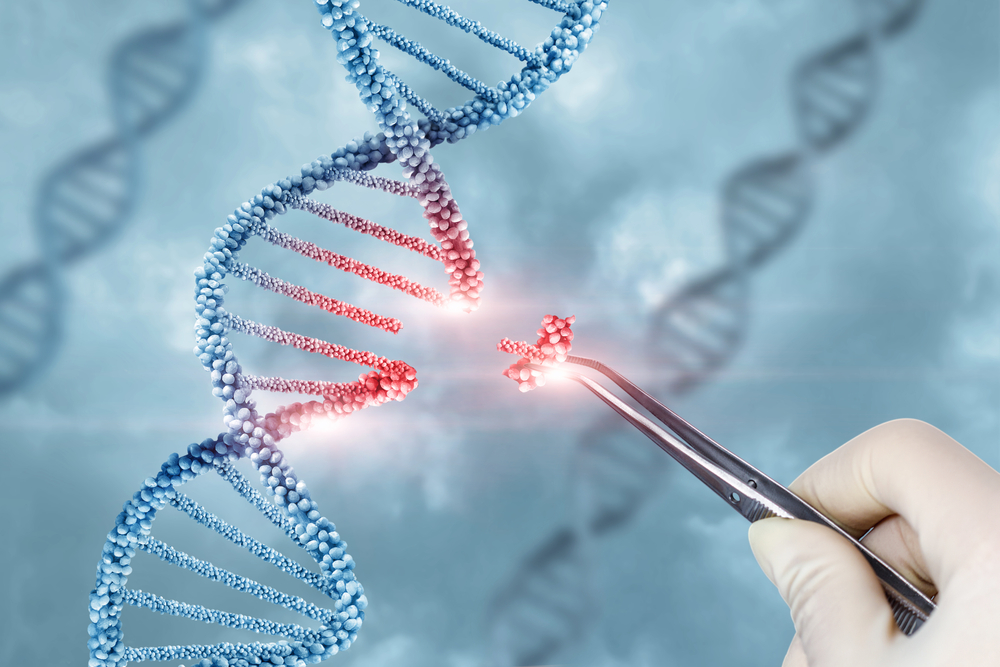Using large language models (LLMs) trained on biological diversity at scale, a California startup revealed this week that has demonstrated the first successful precision editing of the human genome with a programmable gene editor designed with GenAI.
The development is aimed at improving the way scientists fight illness and disease and is part of a wider effort to build AI technologies that can improve medical care.
Just like OpenAI’s ChatGPT learns to generate language by analyzing books and lots of other written texts, Berkeley-based Profluent’s technology created new gene editors after analyzing enormous amounts of biological data, including microscopic mechanisms that scientists already use to edit human DNA. These gene editors are based on Nobel Prize-winning methods involving biological mechanisms called CRISPR. Technology based on CRISPR is providing a way of altering genes that cause hereditary conditions.
Gene editing has the potential to solve fundamental challenges in human health as well as in agriculture and biotechnology. However, “CRISPR-based gene editors derived from microbes, while powerful, often show significant functional tradeoffs when ported into non-native environments, such as human cells,” says an abstract of a paper Profluent is expected to present next month at the annual meeting of the American Society of Gene and Cell Therapy. “Artificial intelligence (AI) enabled design provides a powerful alternative with potential to bypass evolutionary constraints and generate editors with optimal properties.”
Profluents said that it is “open sourcing” this editor, called OpenCRISPR-1, so that individuals, academic labs and companies to experiment with the technology for free.
Meanwhile, Moderna and OpenAI separately announced this week that they are deepening their partnership to accelerate the development of life-saving treatments with the technology.
Moderna, which develops mRNA medicines with the COVID-19 vaccine being its most well-known breakthrough, is using GenAI to increase human capacity and clinical performance. The company, which has been working with OpenAI since early 2023, this week is now deploying ChatGPT Enterprise to thousands of employees across the company, to empower every function with AI.
One of the many solutions Moderna has built and is continuing to develop and validate with ChatGPT Enterprise is a GPT pilot called Dose ID. Dose ID has the potential to review and analyze clinical data and is able to integrate and visualize large datasets. It is intended for use as a data-analysis assistant to the clinical study team, helping to augment the team’s clinical judgment and decision-making.
Moderna is using its platform for developing mRNA medicines to bring up to 15 new products to market in the next five years—from a vaccine against respiratory syncytial virus (RSV) to individualized cancer treatments.
Scientists at the University of Washington, are also using the methods behind chatbots like OpenAI’s ChatGPT (as well as image generators like Midjourney) to create entirely new proteins — the microscopic molecules that drive all human life — as they work to accelerate the development of new vaccines and medicines. to individualized cancer treatments.
AI technologies have been used to improve the analysis of medical images such as x-rays, CT scans, and MRIs for disease diagnosis; for extracting and analyzing information from electronic health records; for personalized medicine; for remote monitoring with wearable devices, sensors, and home monitoring systems; and for drug discovery and development. ]
GenAI introduces a whole other realm of possibilities. It has the potential to transform clinical workflows and the way doctors work, says an article in The Lancet, a weekly peer-reviewed academic medical journal, For example, at the basic level, GenAI can help health-care professionals interpret data such as a patient’s medical history, imaging records, genomics, or laboratory results with a simple query, even if the information is stored across different formats and locations. GenAI also have the ability to generate synthetic data, such as medical images that can be used to augment training data and create diverse datasets for research and medical training.
Some pharmaceutical leaders have expressed skepticism that AI could ever discover new drugs any better than humans can. The Lancet takes the opposite position. It says GenAI models can accelerate drug development by generating novel molecular structures with desired properties. “It is entirely conceivable,” concludes The Lancet, “that GenAI could eventually replace the need for most clinical trials and laboratory experiments, thus accelerating clinical and scientific developments at an unprecedented pace.”
IN OTHER NEWS THIS WEEK
CYBERSECURITY
Cisco Systems said that hackers have subverted some of its digital security devices to break in to government networks globally. In a blog post published on April 24 the company said its Adaptive Security Appliances – pieces of equipment that roll several different digital defense functions into one – had previously unknown vulnerabilities that had been exploited by a group of hackers they called “UAT4356.” The blog post described the group as a “sophisticated state-sponsored actor” and said that the company’s investigation found victims that “involved government networks globally.” Cisco said the vulnerabilities have been patched. In a statement, the company urged customers to take “immediate action” to update their software.
To access more of The Innovator’s News In Context stories click here.






